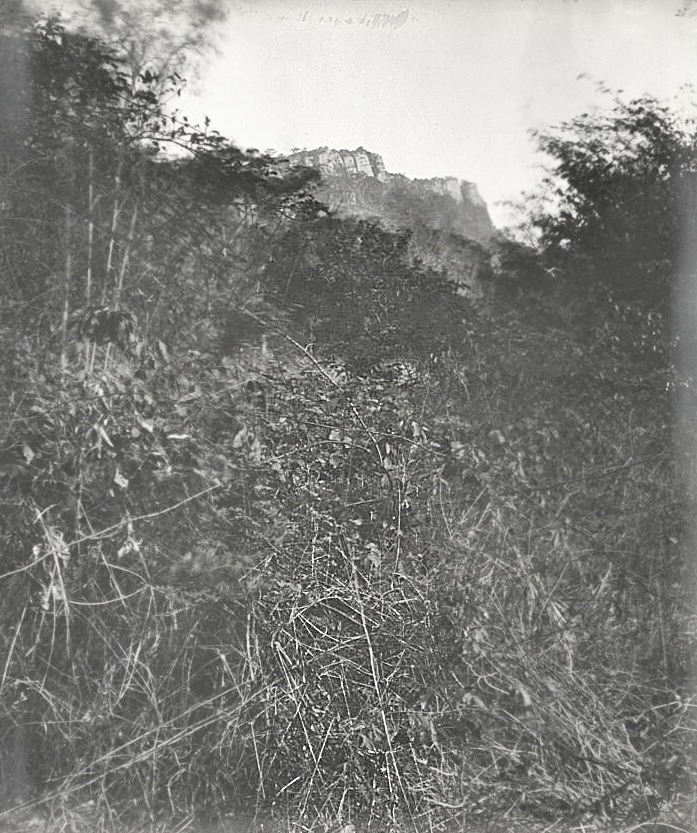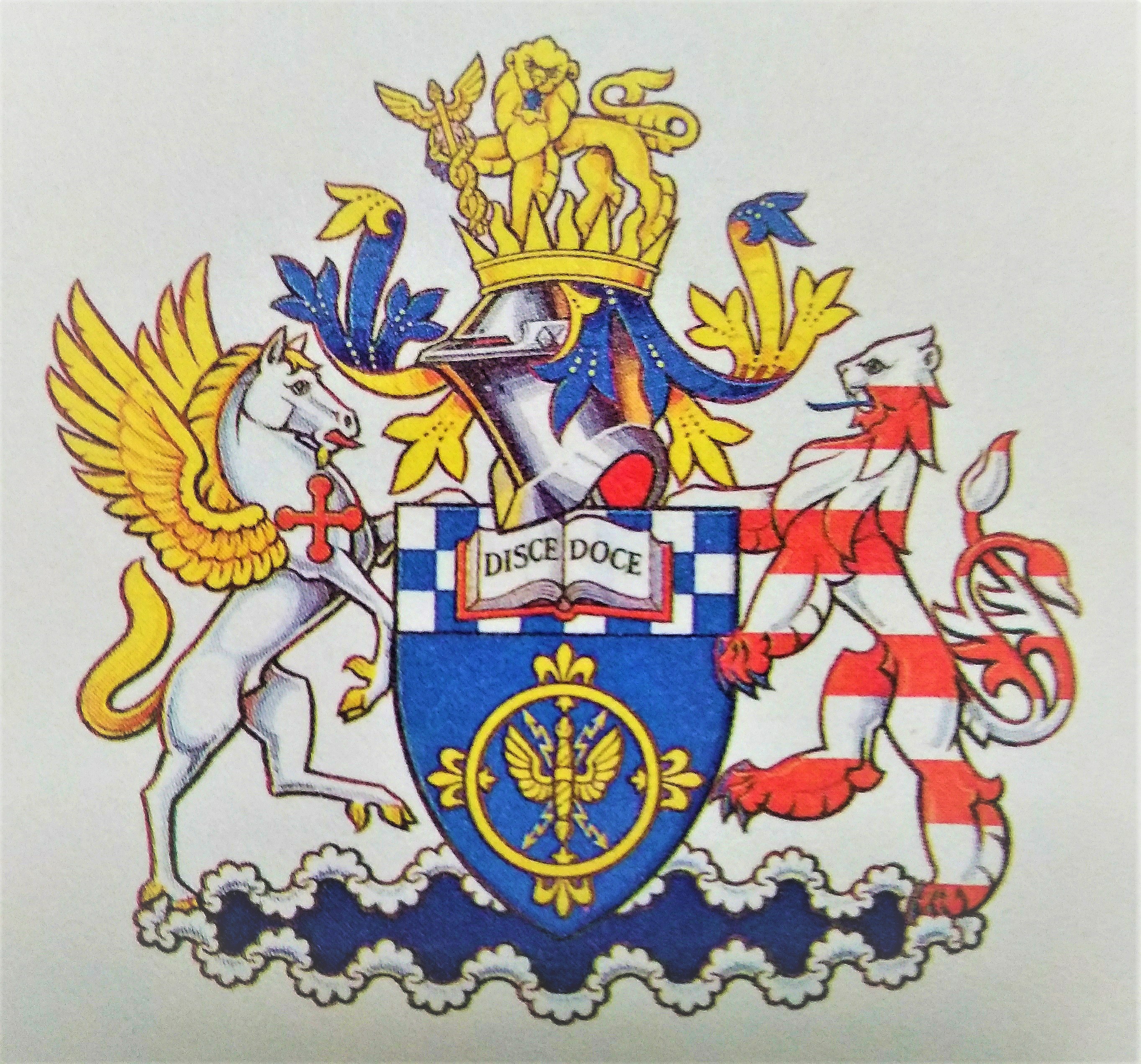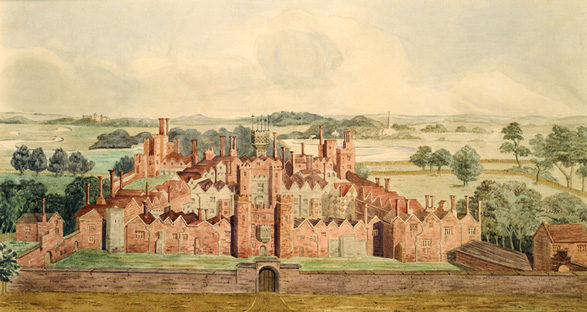|
Francis Bolton
Sir Francis John Bolton (1831–1887) was a British Army officer, known also as a telegraphic and electrical engineer. Life The son of Dr. Thomas Wilson Bolton, surgeon, of London and Manchester, he enlisted in the Royal Artillery, in which he rose to be a non-commissioned officer, getting his first step as acting bombardier at Halifax, Nova Scotia. He obtained a commission as ensign in the Gold Coast artillery corps on 4 September 1857, and served in the expedition against the Krobo people, a small, prosperous ethnic group living east of Accra, in September, October, and November 1858, being present at the action of Krobo Heights on 18 September. He was promoted to be lieutenant on 9 November In June and July 1859 he was adjutant in the successful expedition against the Danquah rebels. On his return to England Bolton was transferred to the 12th Regiment of Foot and promoted as captain on 21 September 1860. He was for several years engaged with Captain Philip Howard Colomb R.N. ... [...More Info...] [...Related Items...] OR: [Wikipedia] [Google] [Baidu] |
Royal Artillery
The Royal Regiment of Artillery, commonly referred to as the Royal Artillery (RA) and colloquially known as "The Gunners", is one of two regiments that make up the artillery arm of the British Army. The Royal Regiment of Artillery comprises thirteen Regular Army regiments, the King's Troop Royal Horse Artillery and five Army Reserve regiments. History Formation to 1799 Artillery was used by the English army as early as the Battle of Crécy in 1346, while Henry VIII established it as a semi-permanent function in the 16th century. Until the early 18th century, the majority of British regiments were raised for specific campaigns and disbanded on completion. An exception were gunners based at the Tower of London, Portsmouth and other forts around Britain, who were controlled by the Ordnance Office and stored and maintained equipment and provided personnel for field artillery 'traynes' that were organised as needed. These personnel, responsible in peacetime for maintaining the ... [...More Info...] [...Related Items...] OR: [Wikipedia] [Google] [Baidu] |
Society Of Telegraph Engineers And Electricians
The Institution of Electrical Engineers (IEE) was a British professional organisation of electronics, electrical, manufacturing, and Information Technology professionals, especially electrical engineers. It began in 1871 as the Society of Telegraph Engineers. In 2006, it changed its name to the Institution of Engineering and Technology (IET). Notable past presidents have included Lord Kelvin (1889), Sir Joseph Swan (1898) and Sebastian de Ferranti (1910–11). Notable chairmen include John M. M. Munro (1910–11). History The IEE was founded in 1871 as the Society of Telegraph Engineers, changed its name in 1880 to the Society of Telegraph Engineers and Electricians and changed to the Institution of Electrical Engineers in 1888. It was Incorporated by a Royal Charter in 1921. In 1988 the Institution of Electrical Engineers (IEE) merged with the Institution of Electronic and Radio Engineers (IERE), originally the British Institution of Radio Engineers (Brit IRE) founded i ... [...More Info...] [...Related Items...] OR: [Wikipedia] [Google] [Baidu] |
English Engineers
English usually refers to: * English language * English people English may also refer to: Peoples, culture, and language * ''English'', an adjective for something of, from, or related to England ** English national identity, an identity and common culture ** English language in England, a variant of the English language spoken in England * English languages (other) * English studies, the study of English language and literature * ''English'', an Amish term for non-Amish, regardless of ethnicity Individuals * English (surname), a list of notable people with the surname ''English'' * People with the given name ** English McConnell (1882–1928), Irish footballer ** English Fisher (1928–2011), American boxing coach ** English Gardner (b. 1992), American track and field sprinter Places United States * English, Indiana, a town * English, Kentucky, an unincorporated community * English, Brazoria County, Texas, an unincorporated community * Engl ... [...More Info...] [...Related Items...] OR: [Wikipedia] [Google] [Baidu] |
Royal Artillery Officers
Royal may refer to: People * Royal (name), a list of people with either the surname or given name * A member of a royal family Places United States * Royal, Arkansas, an unincorporated community * Royal, Illinois, a village * Royal, Iowa, a city * Royal, Missouri, an unincorporated community * Royal, Nebraska, a village * Royal, Franklin County, North Carolina, an unincorporated area * Royal, Utah, a ghost town * Royal, West Virginia, an unincorporated community * Royal Gorge, on the Arkansas River in Colorado * Royal Township (other) Elsewhere * Mount Royal, a hill in Montreal, Canada * Royal Canal, Dublin, Ireland * Royal National Park, New South Wales, Australia Arts, entertainment, and media * ''Royal'' (Jesse Royal album), a 2021 reggae album * ''The Royal'', a British medical drama television series * ''The Royal Magazine'', a monthly British literary magazine published between 1898 and 1939 * ''Royal'' (Indian magazine), a men's lifestyle bimonthly * Royal Te ... [...More Info...] [...Related Items...] OR: [Wikipedia] [Google] [Baidu] |
1887 Deaths
Events January–March * January 11 – Louis Pasteur's anti-rabies treatment is defended in the Académie Nationale de Médecine, by Dr. Joseph Grancher. * January 20 ** The United States Senate allows the Navy to lease Pearl Harbor as a naval base. ** British emigrant ship ''Kapunda'' sinks after a collision off the coast of Brazil, killing 303 with only 16 survivors. * January 21 ** The Amateur Athletic Union (AAU) is formed in the United States. ** Brisbane receives a one-day rainfall of (a record for any Australian capital city). * January 24 – Battle of Dogali: Abyssinian troops defeat the Italians. * January 28 ** In a snowstorm at Fort Keogh, Montana, the largest snowflakes on record are reported. They are wide and thick. ** Construction work begins on the foundations of the Eiffel Tower in Paris, France. * February 2 – The first Groundhog Day is observed in Punxsutawney, Pennsylvania. * February 4 – The Interstate Commerce Act ... [...More Info...] [...Related Items...] OR: [Wikipedia] [Google] [Baidu] |
1831 Births
Events January–March * January 1 – William Lloyd Garrison begins publishing '' The Liberator'', an anti-slavery newspaper, in Boston, Massachusetts. * January 10 – Japanese department store, Takashimaya in Kyoto established. * February–March – Revolts in Modena, Parma and the Papal States are put down by Austrian troops. * February 2 – Pope Gregory XVI succeeds Pope Pius VIII, as the 254th pope. * February 5 – Dutch naval lieutenant Jan van Speyk blows up his own gunboat in Antwerp rather than strike his colours on the demand of supporters of the Belgian Revolution. * February 7 – The Belgian Constitution of 1831 is approved by the National Congress. *February 8 - Aimé Bonpland leaves Paraguay. * February 14 – Battle of Debre Abbay: Ras Marye of Yejju marches into Tigray, and defeats and kills the warlord Sabagadis. * February 25 – Battle of Olszynka Grochowska (Grochów): Polish rebel forces divide a Ru ... [...More Info...] [...Related Items...] OR: [Wikipedia] [Google] [Baidu] |
Oatlands Park
Oatlands Palace is a former Tudor and Stuart royal palace which took the place of the former manor of the village of Oatlands near Weybridge, Surrey. Little remains of the original building, so excavations of the palace took place in 1964 to rediscover its extent. Palace Much of the foundation stone for the palace came from Chertsey Abbey which fell into ruins after the Dissolution of the Monasteries. Henry VIII came to Oatlands on a progress in September 1514 and hunted stags on Chertsey Meads. He acquired the house in 1538, and rebuilt it for Anne of Cleves. The palace was built around three main adjoining quadrangular courtyards covering fourteen hectares and utilising an existing 15th-century moated manor house. A bed made for Anne of Cleves was described in an inventory of Oatlands. "Quene Annes bedd" had curtains of crimson cloth of gold and cloth of silver decorated with borders of purple velvet on the seams. It featured 108 embroidered badges of Anne and Henry an ... [...More Info...] [...Related Items...] OR: [Wikipedia] [Google] [Baidu] |
International Health Exhibition
The International Health Exhibition was one of a series of international exhibitions held in South Kensington, London, in the 1880s under the patronage of Queen Victoria and the Prince of Wales. Four million people visited the 1884 exhibition. The exhibition's motto was "From labour health, from health contentment springs". British Museum. Retrieved 18 May 2019. See also * 1883 * |
South Kensington
South Kensington, nicknamed Little Paris, is a district just west of Central London in the Royal Borough of Kensington and Chelsea. Historically it settled on part of the scattered Middlesex village of Brompton. Its name was supplanted with the advent of the railways in the late 19th century and the opening (and shutting) and naming of local tube stations. The area has many museums and cultural landmarks with a high number of visitors, such as the Natural History Museum, the Science Museum and the Victoria and Albert Museum. Adjacent affluent centres such as Knightsbridge, Chelsea and Kensington, have been considered as some of the most exclusive real estate in the world. Geography As is often the case in other areas of London, the boundaries for South Kensington are arbitrary and have altered with time. This is due in part to usage arising from the tube stops and other landmarks which developed across Brompton. A contemporary definition is the commercial area around the Sout ... [...More Info...] [...Related Items...] OR: [Wikipedia] [Google] [Baidu] |
Bournemouth
Bournemouth () is a coastal resort town in the Bournemouth, Christchurch and Poole council area of Dorset, England. At the 2011 census, the town had a population of 183,491, making it the largest town in Dorset. It is situated on the Southern England, English south coast, equidistant () from Dorchester, Dorset, Dorchester and Southampton. Bournemouth is part of the South East Dorset conurbation, which has a population of 465,000. Before it was founded in 1810 by Lewis Tregonwell, the area was a deserted heathland occasionally visited by fishermen and smugglers. Initially marketed as a health resort, the town received a boost when it appeared in Augustus Granville's 1841 book, ''The Spas of England''. Bournemouth's growth accelerated with the arrival of the railway, and it became a town in 1870. Part of the Historic counties of England, historic county of Hampshire, Bournemouth joined Dorset for administrative purposes following the Local Government Act 1972, reorganisation of l ... [...More Info...] [...Related Items...] OR: [Wikipedia] [Google] [Baidu] |
Metropolis Water Act 1871
A metropolis () is a large city or conurbation which is a significant economic, political, and cultural center for a country or region, and an important hub for regional or international connections, commerce, and communications. A big city belonging to a larger urban agglomeration, but which is not the core of that agglomeration, is not generally considered a metropolis but a part of it. The plural of the word is ''metropolises'', although the Latin plural is ''metropoles'', from the Greek ''metropoleis'' (). For urban centers outside metropolitan areas that generate a similar attraction on a smaller scale for their region, the concept of the regiopolis ("regio" for short) was introduced by urban and regional planning researchers in Germany in 2006. Etymology Metropolis (μητρόπολις) is a Greek word, coming from μήτηρ, ''mḗtēr'' meaning "mother" and πόλις, ''pólis'' meaning "city" or "town", which is how the Greek colonies of antiquity referred to ... [...More Info...] [...Related Items...] OR: [Wikipedia] [Google] [Baidu] |
Richard Hugh Stotherd
Richard Hugh Stotherd (1828–1895) was a British Army officer, a major-general in the Royal Engineers and the director-general of the Ordnance Survey of the United Kingdom, Life The son of General Richard J. Stotherd (1796–1879), colonel commandant Royal Engineers, by his first wife, Elizabeth Sydney (died 1853), daughter of Hugh Boyle, of Dungiven, County Londonderry, he was born at Angler Castle, County Tyrone, on 25 November 1828. His father, who came of a Lincolnshire family, worked on the Ordnance Survey of Ireland, and was promoted general 19 June 1872. Educated at University College school, and at the Royal Military Academy, Woolwich, Stotherd received a commission as second lieutenant in the Royal Engineers on 2 May 1847, and first lieutenant on 28 October. He went through the usual course of professional study at Chatham, and then served at Woolwich and at Gibraltar. On his return home he was posted to the Ordnance Survey of Great Britain and sent to Dumfries. He w ... [...More Info...] [...Related Items...] OR: [Wikipedia] [Google] [Baidu] |








